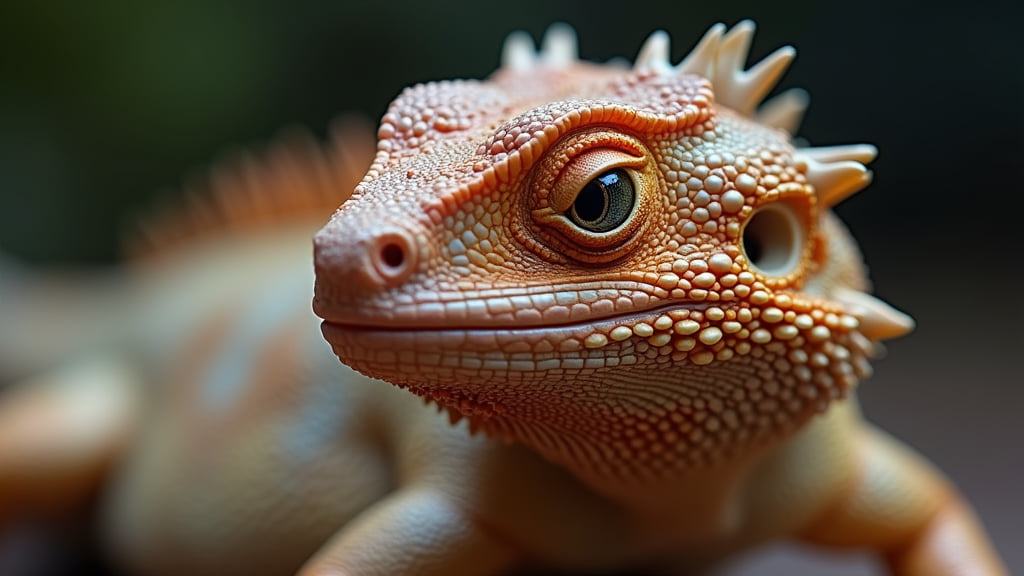As an exotic pet owner for over a decade, I can tell you that the health of your bearded dragon is paramount. When it comes to respiratory infections, timely attention and care are crucial. These conditions can escalate quickly if not addressed properly. In this blog post, we will dive deep into respiratory infections in bearded dragons, from recognising symptoms to potential treatments.
Understanding Respiratory Infections in Bearded Dragons
What Are Respiratory Infections?
Respiratory infections in bearded dragons are quite common and are often caused by bacteria, viruses, fungi, or parasites. These infections can affect the dragon’s lungs and breathing passages, leading to severe health complications if neglected. Warm and arid conditions mimic their natural habitat and are essential for preventing these issues.
Who Is at Risk?
Young dragons and those with compromised health are more susceptible. If you’ve just brought a new bearded dragon home, it’s crucial to keep an eye out for symptoms, especially since stressful conditions can make them more vulnerable.
Symptoms to Watch Out For
Recognising the signs early is vital. Common symptoms include:
- Laboured breathing or wheezing
- Mucus around the nostrils or mouth
- Lethargy and decreased appetite
- Gaping mouth or puffed-up throat
If you observe any of these symptoms, it’s best to consult a vet specialising in reptiles promptly.
Common Causes of Respiratory Infections
Poor Habitat Conditions
One of the primary causes of respiratory infections is inadequate habitat conditions. Bearded dragons require specific temperature ranges, and inconsistent or inappropriate temperatures can lead to stress and illnesses.
- Temperature: Maintain a basking spot at 95-110°F (35-43°C) and a cooler area of about 75-85°F (24-29°C).
- Humidity: Keep the humidity low, ideally between 20% to 40%.
Contaminated Environments
Dirty enclosures can harbour bacteria and fungi that may cause respiratory infections. Regular cleaning is non-negotiable.
- Weekly Cleaning: Disinfect the enclosure weekly. Remove any uneaten food and faecal matter daily.
- Substrate: Use safe and easy-to-clean substrates like paper towels or reptile carpet instead of loose substrates like sand or wood chips.
Improper Diet
A poor diet can weaken a bearded dragon’s immune system, making them more susceptible to infections.
- Balanced Diet: Ensure a diet rich in vegetables, insects, and occasional supplements to keep your dragon healthy.
Treatment and Prevention
Immediate Steps if You Suspect an Infection
If you notice symptoms of a respiratory infection, prompt veterinary care is essential. While general guidance can be offered here, specific medical advice should always come from a vet.
Medical Treatment
- Antibiotics: Vets often prescribe antibiotics if a bacterial infection is diagnosed.
- Nebulisation: In some cases, inhalation therapy with medicated vapour can be beneficial.
Home Remedies (With Caution)
While waiting for your vet appointment, here are some actions you might take in consultation with your vet:
- Increase Temperature: Slightly increase the enclosure temperature to boost your dragon’s immune response.
- Hydration: Ensure your dragon stays hydrated. A warm bath can sometimes help.
Long-term Prevention
- Regular Check-Ups: Schedule annual health checks for your dragon.
- Proper Husbandry: Maintain optimal habitat conditions and a balanced diet.
- Quarantine New Pets: Always quarantine new reptiles before introducing them to your dragon’s environment.
Conclusion
Respiratory infections in bearded dragons are a serious concern but are preventable with proper care. By maintaining optimal habitat conditions, ensuring a balanced diet, and being vigilant about health symptoms, you can keep your bearded dragon thriving. When in doubt, always consult a reptile vet to address any health concerns your bearded dragon may face.
Proper care and attention can make a world of difference in the life of your bearded dragon. Keep them happy, healthy, and free from respiratory infections by following the guidelines above.
Internal and External Links
If you’re interested in more information on bearded dragon care, check out our guide to bearded dragon ownership. For further reading on reptile health, the Reptile Vet Association has excellent resources.
Meta Description
Discover how to recognise, treat, and prevent respiratory infections in bearded dragons. Our expert guide provides practical advice to keep your pet healthy.
Remember, the best way to ensure your bearded dragon’s health is through regular care and attention. Keep their environment clean, provide a balanced diet, and monitor them for any signs of illness. If you ever suspect something’s wrong, don’t hesitate to consult with your vet. Happy dragon keeping!

